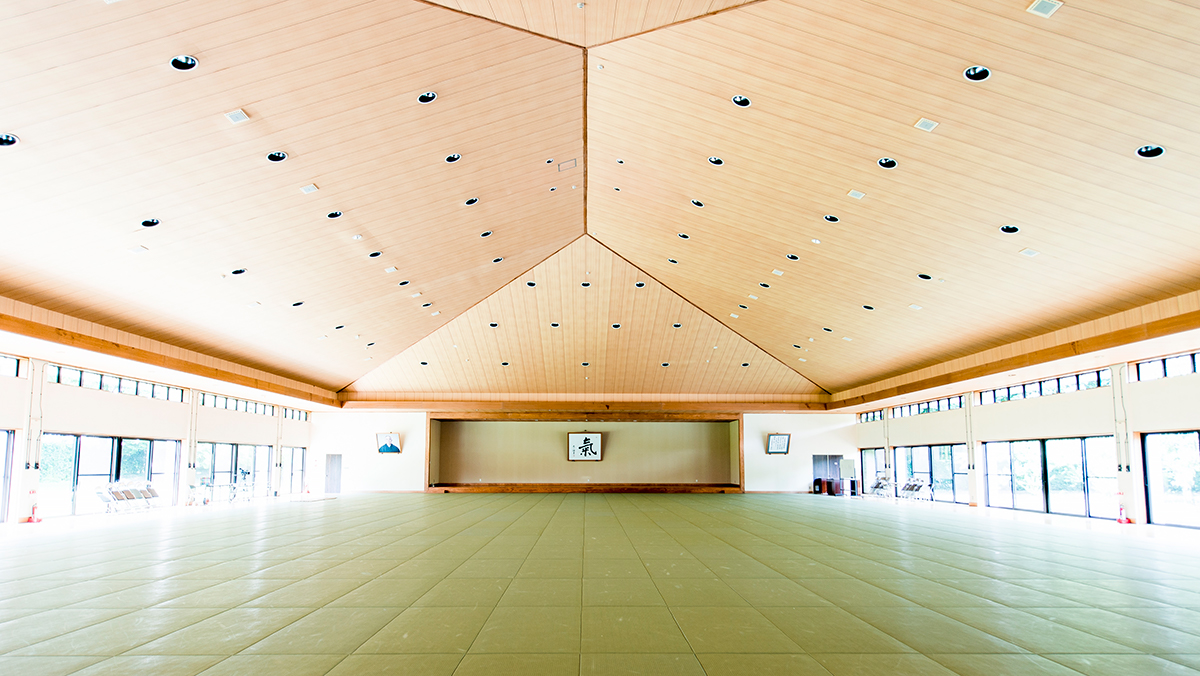Words such as “steel” or “iron” are often used to describe the power or strength of the mind in Japanese. This usually gives the impression that a strong mind is hard or rigid.
The truth is, the state of a strong mind is not hard (stubborn), but just the opposite. A strong mind is very flexible. For example, people who have a strict “Things must be done by this way” way of thinking are unable to either react to change or accept the difference between ideals and reality.
This can be easily shown by practices on the mat.
When trying to learn one technique, people who think strictly that “This technique must be done exactly this way” are unable to cope, and get frustrated, when things are unsuccessful and do not turn out the way they planned or decided. This usually leads to them becoming depressed and negative.
This feeling of frustration usually consumes a lot of energy, so a mind in this state does not have the stamina to persevere, and therefore will not be able to achieve the desired result.
On the other hand, people who have flexibility and think “Things will be better soon.” are able to accept and adjust to the outcomes of things even if it does not happen accordingly to how they planned it. In this way, they are consistent in trying to achieve their daily goals or tasks and achieving results instead of just giving up.
This was noticed in lectures/classes conducted in universities.
I am teaching Aikido at classes/ lectures in a university, and within half a year there are some students who are absent from Aikido classes due to getting hurt or sickness.
During this time, I noticed that students who keep thinking hard that they have to make sure they attend all Aikido classes and not even skip one class, would not be able to come back and usually stop practicing.
Students who have a flexible approach can come back after some break and can be consistent in everything.
A rigid mind has a risk of breaking, and a flexible mind does not break. An old saying goes that the roots of a willow tree are firmly planted in the ground but in the wind the branches of weeping willow is flexible and move freely as the wind blows.
How do we obtain this form of flexibility?
One way is to understand the difference between focus and fixation.
If all you can see or focus on is one point of a flow of things to do, this is called fixation or over concentration, since all you will be concentrating on is one part, instead of being able to see the whole picture or the broader scope of the whole thing. To have a clear goal is very important but when you think “Things must be done by this way” to achieve that goal, obsession or fixation starts immediately.
To concentrate or to fixate is two different things. To concentrate or focus is a result of being relaxed and the mind can be used freely. Whereas to be fixated is as a result of being nervous and tense which leads to not being able to use the mind freely. So in order to be focus properly, the mind and body has to be unified and relaxed.
When I had a three-way discussion with Mr. Sadaharu Oh and Mr. Tatsuro Hiroka for the book of “Do ji nai”, this point was covered thoroughly by Mr. Oh.
A hitter who thinks “Hitting must be done this way” is too stubborn to cope with changes and will not be able to achieve the best possible result. Once Mr. Oh was learned to think “That way of hitting is also OK”, he could be more flexible and adaptable to changes and could achieve the best possible outcome.
I was surprised to find out that Mr. Oh who is well known as very firm and disciplined, was also very flexible.
Another way is: not to over react to the result or outcome of a situation.
People who over-react to the outcome of any situation are always tense and seem to use up a lot of energy which leaves them exhausted and weary during big changes. To achieve any one thing, it always takes a long time, and so over-reactive people will be tired before crossing the goal line.
To receive both good changes and bad changes calmly and be able to move forward a step at a time will be the shortest route to achieve our main goal.
Breathing calmly and achieving a calm mind is very important. To be mindful and not react impulsively to any changes, taking a deep breath before you move, is a way of training. Training to have calm breathing is directly connected to having a strong mind.
To have a strong mind is not about it being powerful during certain instances but about being consistent and progressing steadily, being able to get through things all the way to the end. This is obtained by being flexible and open minded and not by being narrow minded and inflexible.
To be able to get through and walk this long road, let us continue practicing and learn this strong powerful mind.

